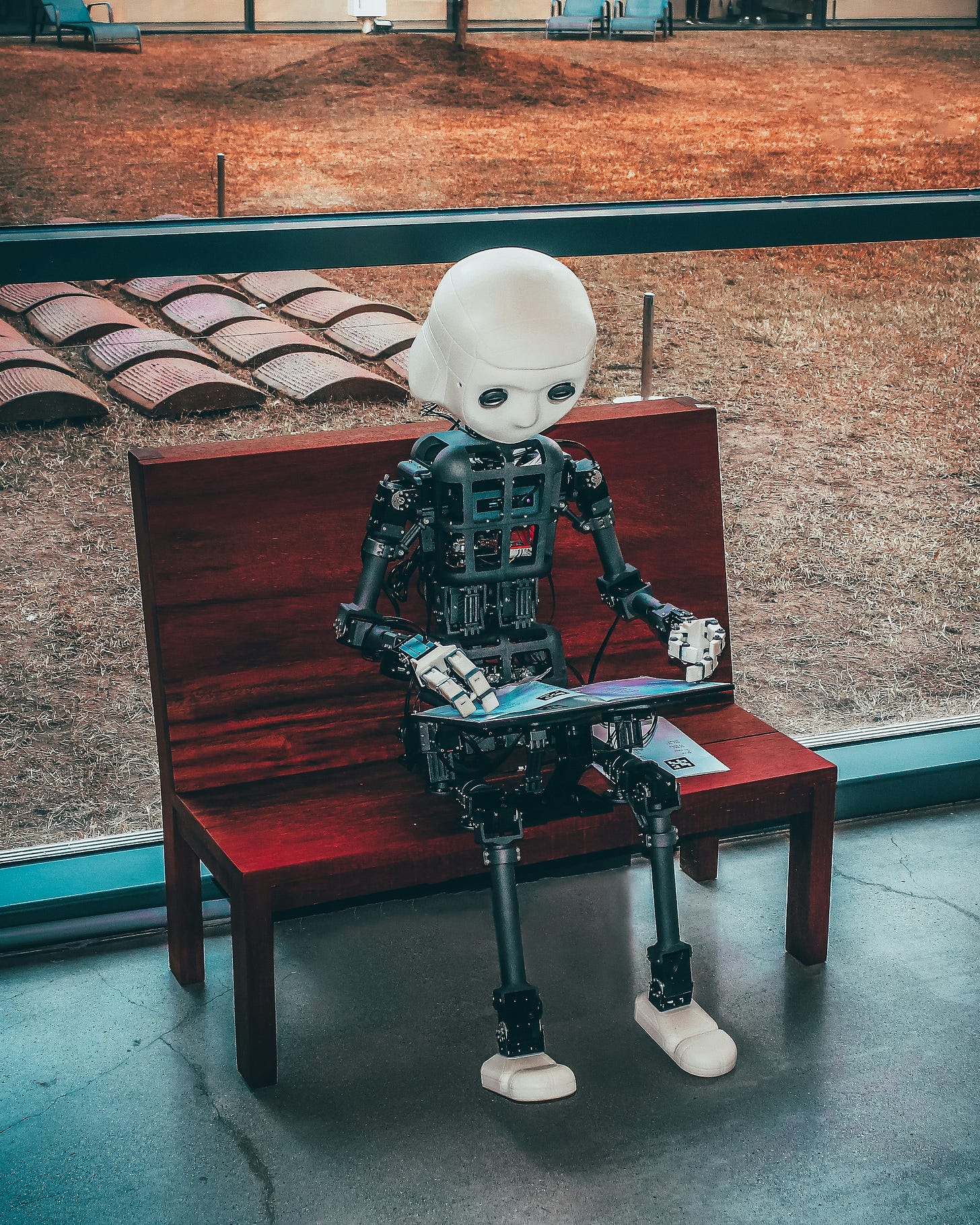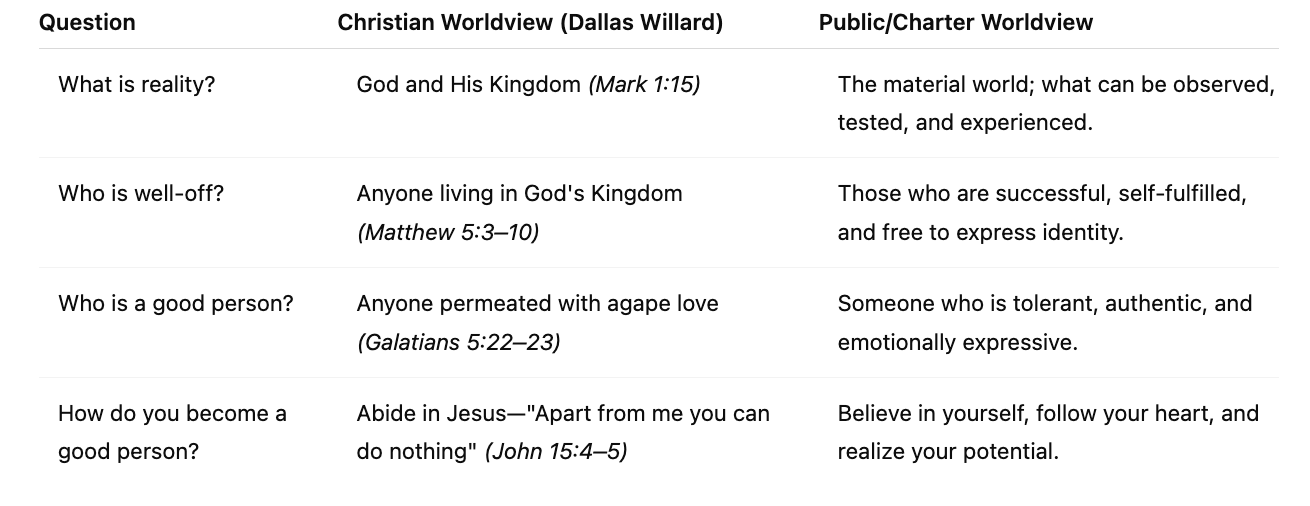The Child Has a Soul—and a Worldview: Why AI Isn’t Enough
A Reflection on AI, Worldview and Our Students' Souls
In a recent op-ed for Fox News, Kent Ingle, president of Southeastern University, offered a much-needed reminder:
"AI can simulate a teacher, but it cannot shepherd a soul."
In an era where schools are chasing innovation, and artificial intelligence is becoming the newest classroom assistant, we need to pause and ask: What is school really for? And what does it mean to educate a human being?
Ingle’s article rightly pushes back on the growing assumption that AI can take over the deepest roles of education. He writes, "Education is not merely about transferring knowledge; it is about shaping lives, character, and moral values." That’s true—but what’s even more concerning is the current situation in our publicly-funded K-12 institutions who no longer believe that moral formation, let alone soul-care or biblical worldview, is essential for a quality education.

AI is not the first shift in education; it’s just the latest.
Over the last hundred years, we’ve seen a parade of innovations for educational purposes:
Radio in the 1920s brought educational broadcasts into homes.
Television in the 1950s offered mass media instruction.
The internet in the 1990s promised unlimited access to information.
Mobile devices in the 2000s personalized learning on the go.
Adaptive software in the 2010s introduced algorithm-based individualization.
Now, AI in the 2020s offers real-time writing assistance, tutoring, and even behavior prediction.
Each of these technologies offered something useful—but always promising something better: Efficiency. Personalization. Optimization. But none of them could answer the deepest questions education must address: What is a person? What is the purpose of life? What does it mean to be good?
And this is where public and charter education, by and large, offers no meaningful answers.
What Public Education Can’t Answer
Christian philosopher Dallas Willard once said that every worldview answers four foundational questions:
What is reality?
Who is well-off?
Who is a good person?
How do you become a good person?
Compare the Christian worldview with the assumed framework of modern public and charter schools:
In public education, that reality is off-limits. Even in charter schools with "moral formation" goals, the moral vision is often unanchored—built on expressive individualism or idolatry, not transcendent truth.
The gospel of public education today is a postmodern remix: "Be whoever you want to be." But this isn’t just a break from tradition—it’s a form of self-worship. The authority once given to God, Scripture, and natural law is now handed to personal feelings.
From the Ten Commandments to the Self as God
It wasn’t always this way.
In previous generations, American public schools saw themselves as forming citizens who would honor shared moral commitments. Until the early 1960s, prayer was still common in classrooms. The Bible was read as part of the school day. The Ten Commandments often hung on the wall. These weren’t signs of perfection and certainly there were issues, but they were acknowledgments of moral reality and a God who reigns over the universe.
But the tide has certainly turned. Some examples that changed the legal landscape:
1962 – Engel v. Vitale: Public school prayer ruled unconstitutional.
1963 – Abington v. Schempp: Bible reading in schools declared a violation of the Establishment Clause.
1980 – Stone v. Graham: Posting the Ten Commandments in classrooms struck down by the Supreme Court.
Since then, American education has tried to be "neutral"—but in the process, it has become hollow. It assumes students are merely physical objects (bodies and brains), but not spiritual, eternal beings. There is no such thing as a “neutral worldview” on this topic. By not directly addressing it, other cultural narratives and influences rise to the surface.
A Call for Christian Educators
Similar to other technological revolutions, the call for Christian educators isn't to stick our heads in the sand and resist AI. It’s to reclaim the soul of education.
We must teach, model, and invite our students to an abundant life:
Reality is more than pixels and particles—it is God and His kingdom.
Flourishing isn’t found in freedom from rules—but in belonging to Christ.
Goodness isn’t about expression—but about agape love flowing from the Spirit.
Transformation isn’t self-made—it is abiding in Jesus.
AI may assist our teaching—but it cannot define our purpose. And it certainly cannot shepherd a soul.
Let us remember: we are not simply forming students for college or careers—we are shaping eternal beings, made in the image of God, called to love Him and serve others in His glorious kingdom.
In the age of AI, Christian schools, along with parents and the local church, have never been more essential.


